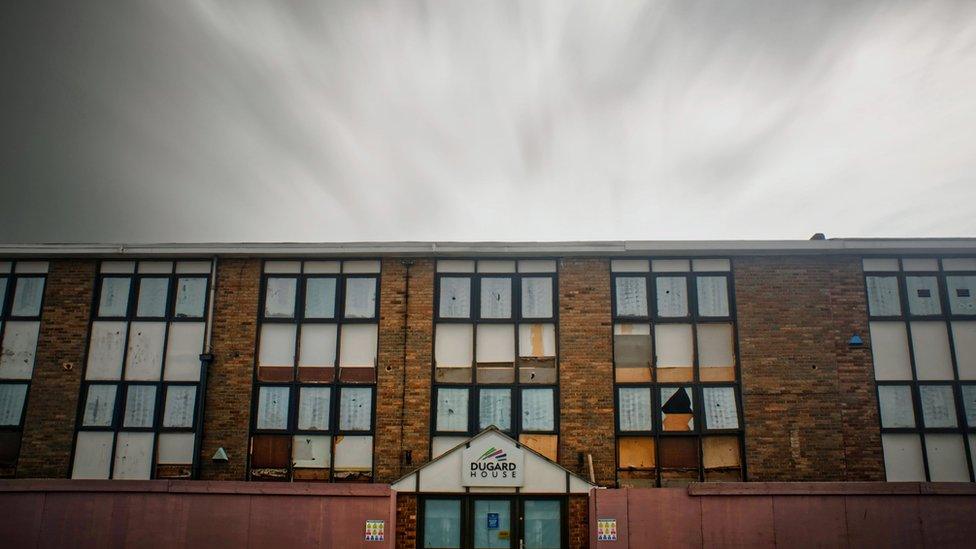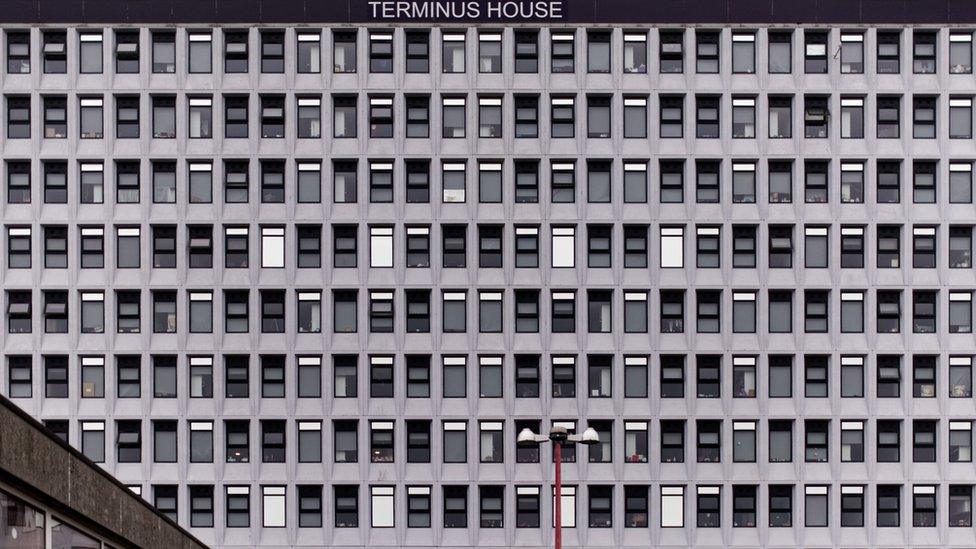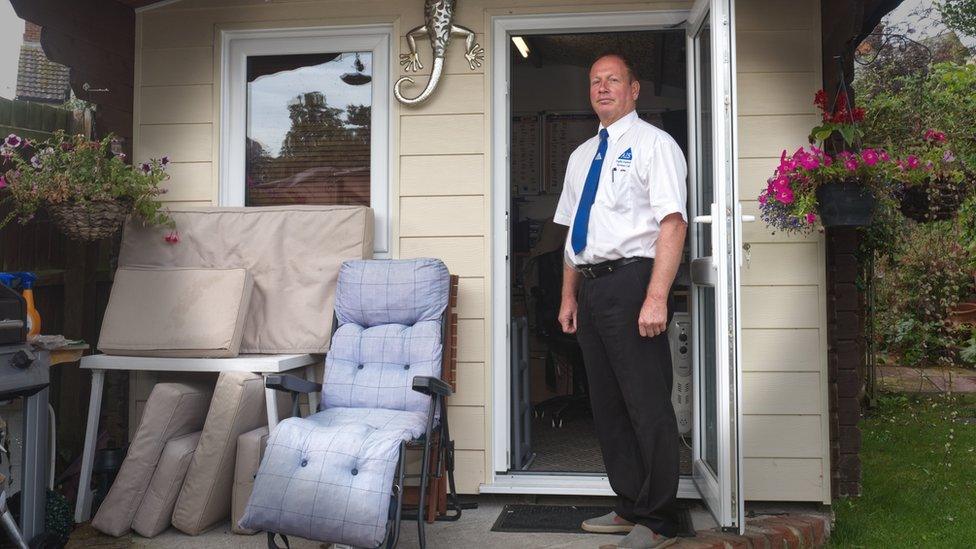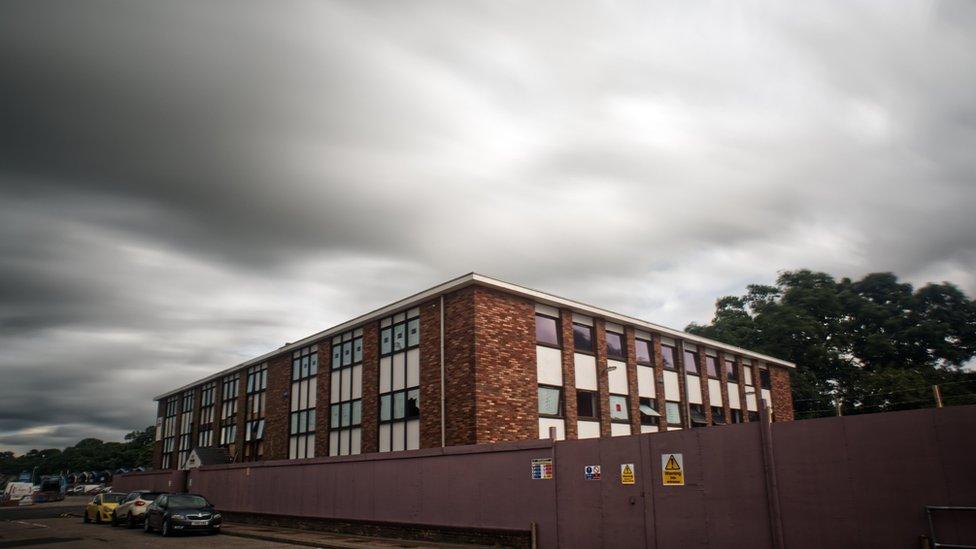Colchester traders ‘forced out’ in office conversion bid
- Published

Caridon Property acquired Dugard House and planned to replace office accommodation with small flats
More than a dozen businesses claim they were "forced out" as part of a deal to turn their premises into flats.
Caridon Property bought office block Dugard House in Colchester and planned to replace about 40 firms based there with about 90 small flats.
The firm's bid under controversial development rules was rejected and the building was sold to Highcrest Properties.
Highcrest said most businesses decided to leave before the purchase.
Caridon notified Colchester Borough Council of its intention to convert the building into residential units in March 2017 under rules known as Permitted Development, which allow developers to change the use of buildings without planning permission with councils having only limited grounds to oppose.
Some of the flats proposed were as small as 16 sq m (172 sq ft).
The council rejected the scheme citing concerns about noise and lack of car parking.
Caridon then sold the building to Highcrest for what the BBC understands was a £200,000 profit minus costs.
Highcrest has had revised plans for 34 flats approved.

Permitted Development

Terminus House in Harlow was converted under Permitted Development Rights
Under a change to Permitted Development rights in 2013, an office block or shop can be turned into housing without the need for a planning application
Unless there are demonstrable concerns about issues such as flooding or contamination, local councils have no control over such developments
The Local Government Association said in January 2019 that half of all new homes being created in Harlow were from office block conversions

The BBC spoke to more than a dozen businesses previously based there that said they had to move.
Steve Williams, who runs Anglia Inspection Services, now works from a shed in his back garden.
"We were up to six staff within Dugard House but I've now brought the company down and there's just a couple of us," he said.
"We left because we were virtually forced out. A company took over the building to renovate it for homes.
"We were told, therefore, we had to find alternative premises."
The move had cost the business money, Mr Williams said, and meant work building the company's reputation had been undone.

Steve Williams, who runs Anglia Inspection Services, now works from a shed in his back garden
Ian Jewers, from Network Media Services, said it had become clear the new owners of the building were unlikely to run a business centre, as his firm had initially been told.
"Once we saw planning permission applied for, we took the steps of relocating very quickly as we knew there was very little alternative office space in the area," he said.
Mike Lilley, the borough council's communities portfolio holder, said Dugard House had been an ideal location for "start-up businesses".
"We want people to live in homes, and not just a box. This is an industrial area and it should be for offices and for people to work in," he said.

Dugard House's new owners tried to sell it at auction but no sale was achieved. The building is currently empty and boarded up
In a statement, Caridon said: "Caridon was historically interested in Dugard House, but we confirm again that Caridon does not own the property either directly or through any subsidiary.
"We had no authority or ability to force any businesses out of the property."
Highcrest Properties said it acquired Dugard House "as an office investment with development asset".
It said the 1970s property was "old, tired and in desperate need of an immediate upgrade" and improvements could not take place with tenants in situ.
A spokesman said most of the tenants had planned to leave before or shortly after it acquired the building, and left of their own volition within months of the deal.
He said: "The remaining tenants were sent notices to leave and the company decided to proceed with vacating the building in November/December 2018, as it was just not a viable financial proposition to keep the building running."
He added many tenants had been in rent arrears and in some cases had not cleared their outstanding balance.